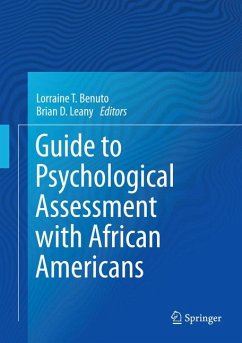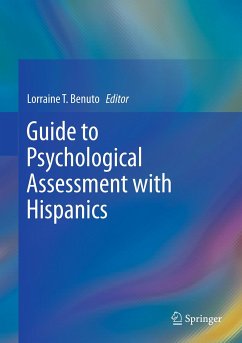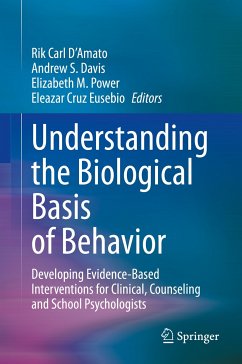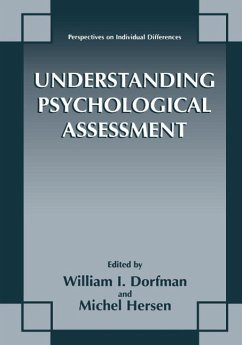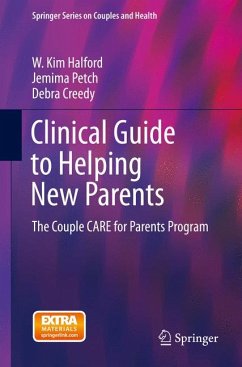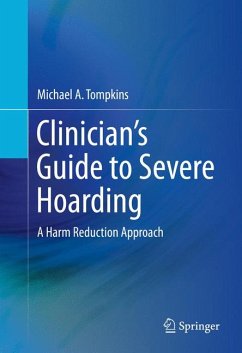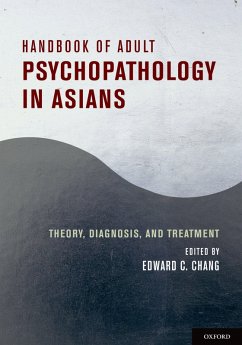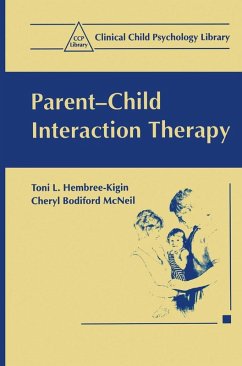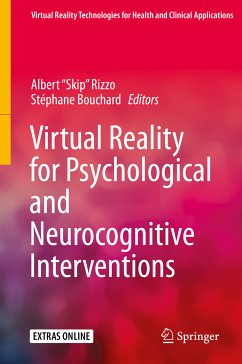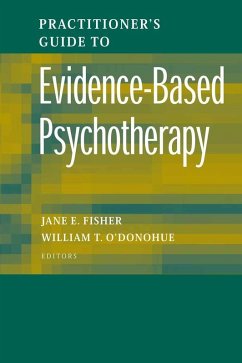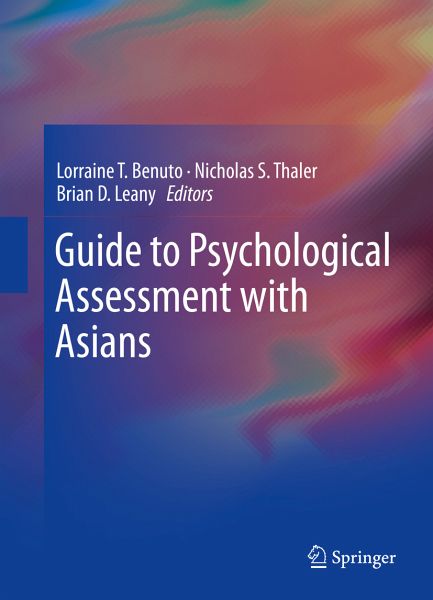
Guide to Psychological Assessment with Asians (eBook, PDF)
Versandkostenfrei!
Sofort per Download lieferbar
40,95 €
inkl. MwSt.
Weitere Ausgaben:

PAYBACK Punkte
20 °P sammeln!
To effectively serve minority clients, clinicians require a double understanding: of both evidence-based practice and the cultures involved. This particularly holds true when working with Asian-Americans, a diverse and growing population.The Guide to Psychological Assessment with Asians synthesizes real-world challenges, empirical findings, clinical knowledge and common-sense advice to create a comprehensive framework for practice. This informed resource is geared toward evaluation of first-generation Asian Americans and recent immigrants across assessment methods (self-report measures, projec...
To effectively serve minority clients, clinicians require a double understanding: of both evidence-based practice and the cultures involved. This particularly holds true when working with Asian-Americans, a diverse and growing population.
The Guide to Psychological Assessment with Asians synthesizes real-world challenges, empirical findings, clinical knowledge and common-sense advice to create a comprehensive framework for practice. This informed resource is geared toward evaluation of first-generation Asian Americans and recent immigrants across assessment methods (self-report measures, projective tests), settings (school, forensic) and classes of disorders (eating, substance, sexual). While the Guide details cross-cultural considerations for working with Chinese-, Japanese-, Korean and Indian-American clients, best practices are also included for assessing members of less populous groups without underestimating, overstating or stereotyping the role of ethnicity in the findings. In addition, contributors discuss diversity of presentation within groups and identify ways that language may present obstacles to accurate evaluation. Among the areas covered in this up-to-date reference:
Designed for practitioners new to working with Asian clients as well as those familiar with the population, the Guide to Psychological Assessment with Asians is exceedingly useful to neuropsychologists, clinical psychologists, health psychologists and clinical social workers.
The Guide to Psychological Assessment with Asians synthesizes real-world challenges, empirical findings, clinical knowledge and common-sense advice to create a comprehensive framework for practice. This informed resource is geared toward evaluation of first-generation Asian Americans and recent immigrants across assessment methods (self-report measures, projective tests), settings (school, forensic) and classes of disorders (eating, substance, sexual). While the Guide details cross-cultural considerations for working with Chinese-, Japanese-, Korean and Indian-American clients, best practices are also included for assessing members of less populous groups without underestimating, overstating or stereotyping the role of ethnicity in the findings. In addition, contributors discuss diversity of presentation within groups and identify ways that language may present obstacles to accurate evaluation. Among the areas covered in this up-to-date reference:
- Structured and semi-structured clinical interviews.
- Assessment of acculturation, enculturation and culture.
- IQ testing.
- Personality disorders.
- Cognitive decline and dementia.
- Mood disorders and suicidality.
- Neuropsychological assessment of children, adolescents and adults.
- Culture-bound syndromes.
Designed for practitioners new to working with Asian clients as well as those familiar with the population, the Guide to Psychological Assessment with Asians is exceedingly useful to neuropsychologists, clinical psychologists, health psychologists and clinical social workers.
Dieser Download kann aus rechtlichen Gründen nur mit Rechnungsadresse in A, B, BG, CY, CZ, D, DK, EW, E, FIN, F, GR, HR, H, IRL, I, LT, L, LR, M, NL, PL, P, R, S, SLO, SK ausgeliefert werden.




